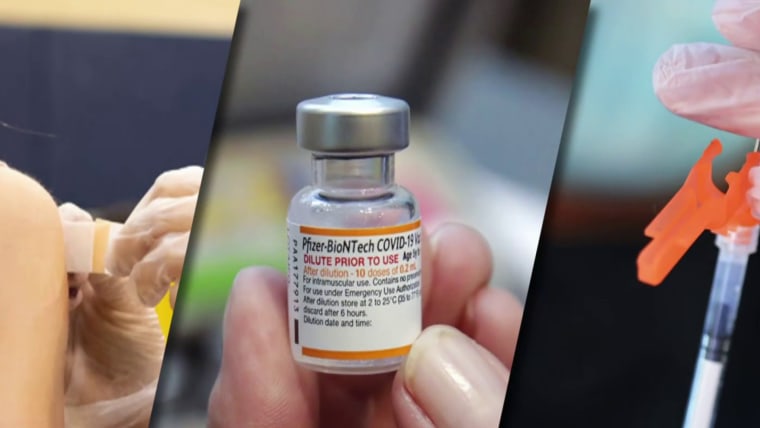CDC advisers weigh delaying second shot to eight weeks
A wider gap between the first two doses of the mRNA Covid-19 vaccines could improve the shots’ effectiveness and help reduce the risk of a rare type of heart inflammation called myocarditis, experts told a Centers for Disease Control and Prevention advisory committee on Friday.
Members of the group, the CDC’s Advisory Committee on Immunization Practices, largely supported extending the recommended interval between the first two doses of both the Pfizer-BioNTech and Moderna vaccines to eight weeks.
For full coverage of the coronavirus pandemic
Though there was no vote on officially extending the timing of the shots, Dr. Grace Lee, who chairs the committee, said it would look into whether it could incorporate the comments into simple guidance for the agency.
Currently, the first two doses of the Pfizer-BioNTech vaccine are given three weeks apart, while the first two doses of the Moderna vaccine are given four weeks apart.
Extending the interval to eight weeks would likely affect roughly 33 million unvaccinated Americans between the ages of 12 and 39, according to Dr. Sara Oliver, an epidemic intelligence service officer for the CDC. Vaccination rates among this age group lag behind rates for those age 40 and up.
Both Pfizer’s and Moderna’s Covid vaccines have been linked to a slightly elevated risk of myocarditis, especially in men between the ages of 18 and 29, though the condition appears to be more common in those who received Moderna, Dr. Nicola Klein, a vaccine researcher at Kaiser Permanente Northern California, said in a presentation to the committee.
But rates of myocarditis fell when the interval between the first and second doses was extended, with the lowest rates among those who waited eight weeks or more to get their second dose, according to Dr. Bryna Warshawsky, a medical adviser with the Public Health Agency of Canada.
Extending the time between doses also appears to result in higher antibody responses and higher vaccine effectiveness, according to data from Canada presented to the committee on Friday.
Dr. Helen Keipp Talbot, a committee member and a professor of medicine at Vanderbilt University, called the strategy a “win-win,” adding the practice appears to be safe and effective.
“As we approach these new variants, the higher antibodies and the more diverse these antibodies are, the better protected people will be,” she said. “I think it’s a win-win for both safety and immunogenicity spread out.”
The approach could also help convince people who have not yet been vaccinated out of concern about myocarditis to get their vaccines.
“Vaccine safety is raised again and again” among some unvaccinated people, said committee member Dr. Matthew Daley, a senior investigator at Kaiser Permanente Colorado. “We have vaccines that are highly effective and have a high degree of safety, but we have a way to make them even safer.”
That the committee is able to review new data and make changes in line with those data “demonstrates to the public that we are very focused on this in the right way and making adjustments that are overall beneficial,” said Dr. Oliver Brooks, the chief medical officer at Watts HealthCare Corporation in Los…
Read More: CDC advisers weigh delaying second shot to eight weeks

